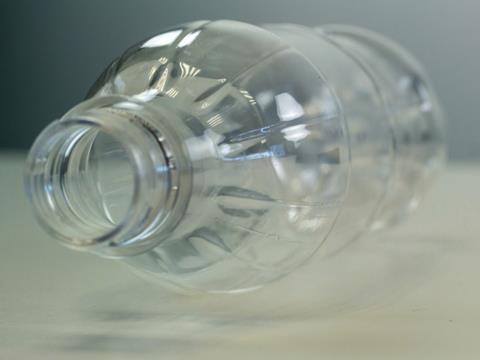
The Upcycle project has officially launched, funded by Horizon Europe under the European Health and Digital Executive Agency (HADEA) and coordinated by Aalborg University in Denmark, with 19 partners from 12 countries seeking to develop circular value chains to convert non-recyclable plastic waste into highly recyclable and non-persistent packaging materials.
The project aims to reduce reliance on incineration and landfill, support the EU’s circular economy goals and create a credible pathway toward non-persistent ‘safe and sustainable’ plastics. Apparently, Upcycle integrates powered process intensification, smart polymerisation strategies and eco-design approaches. Target applications include fresh food flexible packaging, short-lifetime deli packaging, beverage bottles, and personal care packaging - all sectors where recyclability and end-of-life performance are critical.
By 2029, Upcycle hopes to deliver packaging materials that are highly recyclable, non-persistent, and biodegradable where appropriate, while reducing greenhouse gas emissions by 30% compared to current bioplastics.
Plastics technology centre Aimplas says it has developed new polyesters and copolyesters such as PEF, PBAF, and PLA blends for the project, through tailored formulations and pilot-scale production using advanced technologies including reactive extrusion, compounding, injection moulding and blow moulding.
Aimplas states that it leads the evaluation of how these materials behave at end of life, conducting biodegradation modelling, compostability testing (industrial and home), environmental assessments in soil, freshwater and marine settings, and multi-cycle mechanical recycling trials. The company also contributes to defining end-user requirements, market analysis and regulatory compliance, aiming to ensure that Upcycle’s materials are safe, scalable and market ready.
The Upcycle consortium includes DTU, RWTH Aachen University, University College Dublin, Lund University, Eroski, Pack4Food, Aeimis, Eco Imagination and Bio Base Europe Pilot Plant. These partners represent multiple areas of the plastics value chain from waste collection and depolymerization to polymer design, formulation, demonstration and market deployment.
In other news, Nextek and Coveris announced a partnership aiming to convert post-consumer polyolefin (PE and PP) packaging waste into food-grade recycled resins and films using Nextek’s COtooCLEAN process. Nextek adds that as part of the collaboration, a demonstration plant is being developed in the UK to implement the technology at industrial scale.
More recently, Greenback Recycling Technologies and Amcor partnered to convert post-consumer flexible packaging into pyrolytic oil for food-grade plastics, by installing an advanced recycling module at Amcor’s Heanor facility. Financed by the Alliance to End Plastic Waste, the six-month commissioning and trial phase at Amcor’s facility is set to focus predominantly on household waste and demonstrate how co-locating modular recycling units within existing industrial infrastructure could help facilitate a circular economy.
If you liked this story, you might also enjoy:
The ultimate guide to the Packaging and Packaging Waste Regulation in 2025
How are the top brands progressing on packaging sustainability?
Everything you need to know about global packaging sustainability regulation in 2025
The key to increasing the use of reusable packaging in supermarkets














No comments yet